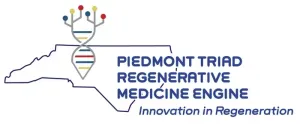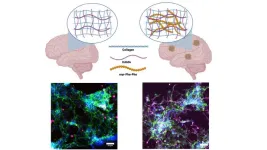(Press-News.org) Cambridge scientists have developed an artificially-intelligent tool capable of predicting in four cases out of five whether people with early signs of dementia will remain stable or develop Alzheimer’s disease.
The team say this new approach could reduce the need for invasive and costly diagnostic tests while improving treatment outcomes early when interventions such as lifestyle changes or new medicines may have a chance to work best.
Dementia poses a significant global healthcare challenge, affecting over 55 million people worldwide at an estimated annual cost of $820 billion. The number of cases is expected to almost treble over the next 50 years.
The main cause of dementia is Alzheimer’s disease, which accounts for 60-80% of cases. Early detection is crucial as this is when treatments are likely to be most effective, yet early dementia diagnosis and prognosis may not be accurate without the use of invasive or expensive tests such as positron emission tomography (PET) scans or lumbar puncture, which are not available in all memory clinics. As a result, up to a third of patients may be misdiagnosed and others diagnosed too late for treatment to be effective.
A team led by scientists from the Department of Psychology at the University of Cambridge has developed a machine learning model able to predict whether and how fast an individual with mild memory and thinking problems will progress to developing Alzheimer’s disease. In research published today in eClinical Medicine, they show that it is more accurate than current clinical diagnostic tools.
To build their model, the researchers used routinely-collected, non-invasive, and low-cost patient data – cognitive tests and structural MRI scans showing grey matter atrophy – from over 400 individuals who were part of a research cohort in the USA.
They then tested the model using real-world patient data from a further 600 participants from the US cohort and – importantly – longitudinal data from 900 people from memory clinics in the UK and Singapore.
The algorithm was able to distinguish between people with stable mild cognitive impairment and those who progressed to Alzheimer’s disease within a three-year period. It was able to correctly identify individuals who went on to develop Alzheimer’s in 82% of cases and correctly identify those who didn’t in 81% of cases from cognitive tests and an MRI scan alone.
The algorithm was around three times more accurate at predicting the progression to Alzheimer’s than the current standard of care; that is, standard clinical markers (such as grey matter atrophy or cognitive scores) or clinical diagnosis. This shows that the model could significantly reduce misdiagnosis.
The model also allowed the researchers to stratify people with Alzheimer’s disease using data from each person’s first visit at the memory clinic into three groups: those whose symptoms would remain stable (around 50% of participants), those who would progress to Alzheimer’s slowly (around 35%) and those who would progress more rapidly (the remaining 15%). These predictions were validated when looking at follow-up data over 6 years. This is important as it could help identify those people at an early enough stage that they may benefit from new treatments, while also identifying those people who need close monitoring as their condition is likely to deteriorate rapidly.
Importantly, those 50% of people who have symptoms such as memory loss but remain stable, would be better directed to a different clinical pathway as their symptoms may be due to other causes rather than dementia, such as anxiety or depression.
Senior author Professor Zoe Kourtzi from the Department of Psychology at the University of Cambridge said: “We’ve created a tool which, despite using only data from cognitive tests and MRI scans, is much more sensitive than current approaches at predicting whether someone will progress from mild symptoms to Alzheimer’s – and if so, whether this progress will be fast or slow.
“This has the potential to significantly improve patient wellbeing, showing us which people need closest care, while removing the anxiety for those patients we predict will remain stable. At a time of intense pressure on healthcare resources, this will also help remove the need for unnecessary invasive and costly diagnostic tests.”
While the researchers tested the algorithm on data from a research cohort, it was validated using independent data that included almost 900 individuals who attended memory clinics in the UK and Singapore. In the UK, patients were recruited through the Quantiative MRI in NHS Memory Clinics Study (QMIN-MC) led by study co-author Dr Timothy Rittman at Cambridge University Hospitals NHS Trust and Cambridgeshire and Peterborough NHS Foundation Trusts (CPFT).
The researchers say this shows it should be applicable in a real-world patient, clinical setting.
Dr Ben Underwood, Honorary Consultant Psychiatrist at CPFT and assistant professor at the Department of Psychiatry, University of Cambridge, said: “Memory problems are common as we get older. In clinic I see how uncertainty about whether these might be the first signs of dementia can cause a lot of worry for people and their families, as well as being frustrating for doctors who would much prefer to give definitive answers. The fact that we might be able to reduce this uncertainty with information we already have is exciting and is likely to become even more important as new treatments emerge.”
Professor Kourtzi said: “AI models are only as good as the data they are trained on. To make sure ours has the potential to be adopted in a healthcare setting, we trained and tested it on routinely-collected data not just from research cohorts, but from patients in actual memory clinics. This shows it will be generalisable to a real-world setting.”
The team now hope to extend their model to other forms of dementia, such as vascular dementia and frontotemporal dementia, and using different types of data, such as markers from blood tests.
Professor Kourtzi added: “If we’re going to tackle the growing health challenge presented by dementia, we will need better tools for identifying and intervening at the earliest possible stage. Our vision is to scale up our AI tool to help clinicians assign the right person at the right time to the right diagnostic and treatment pathway. Our tool can help match the right patients to clinical trials, accelerating new drug discovery for disease modifying treatments.”
The study was funded by Wellcome, the Royal Society, Alzheimer’s Research UK, the Alzheimer’s Drug Discovery Foundation Diagnostics Accelerator, the Alan Turing Institute, and the National Institute for Health Research Cambridge Biomedical Research Centre.
Reference
Lee, LY & Vaghari, D et al. Robust and interpretable AI-guided marker for early dementia prediction in real-world clinical settings. eClinMed; 12 July 2024; DOI: 10.1016/j.eclinm.2024.102725
END
Artificial intelligence outperforms clinical tests at predicting progress of Alzheimer’s disease
2024-07-13
ELSE PRESS RELEASES FROM THIS DATE:
ReMDO announces inaugural Piedmont Triad Regenerative Medicine Engine Ecosystem Summit in Winston-Salem, North Carolina
2024-07-12
Winston-Salem, North Carolina – July 12, 2024 - The RegenMed Development Organization (ReMDO) invites researchers, industry and academia to the inaugural Piedmont Triad Regenerative Medicine Engine Ecosystem Summit (The Summit) on Monday, August 12th in Winston-Salem, North Carolina. Registration is open to new and current partners, with required onboarding for prospective organizations to be completed by August 12. The summit will consist of speaker sessions, discussion panels, breakouts, and networking events with complete details ...
HarvestHub app tackles supply chain, food insecurity issues
2024-07-12
The COVID-19 pandemic infiltrated almost every aspect of society and life in 2020, even in ways people wouldn’t have immediately expected. Stores that typically have no problem stocking shelves were struggling to keep pace with the sudden demand for cleaning supplies along with everything from toilet paper to Sriracha chili sauce.
While these issues aren’t as devastating as the larger health ramifications, they did shed new light on supply chain weaknesses and how that system adapts to rapid and vast market shifts. Factory closures ...
Mathematics outreach program awarded Dolciani grant
2024-07-12
Two years after launching a new mathematics outreach program, a team of Texas A&M University professors has been awarded a Dolciani Mathematics Enrichment Grant to support their program's efforts to promote math enrichment for high school students.
The Program for Research in Mathematics (PReMa) was established in 2022 by four members of Texas A&M’s Department of Mathematics: Dr. Sherry Gong, Dr. Wencai Liu, Dr. Kun Wang and Dr. Zhizhang Xie. The program, directed by Wang, targets high school students living in Texas and neighboring states. Designed to cultivate a deep appreciation and understanding of advanced ...
Groundbreaking study reveals insights into Alzheimer's disease mechanisms through novel hydrogel matrix
2024-07-12
Los Angeles, California - May 20, 2024 - Researchers at the Terasaki Institute for Biomedical Innovation (TIBI) have unveiled a pioneering study shedding light on the intricate mechanisms underlying Alzheimer's disease (AD). The study, titled "Effects of amyloid-β-mimicking peptide hydrogel matrix on neuronal progenitor cell phenotype," represents a significant leap forward in understanding the interplay between amyloid-like structures and neuronal cells.
Led by Natashya Falcone and co-first authors Tess Grett Mathes and Mahsa Monirizad, the research team delved into the realm of self-assembling ...
Study examines urban forests across the United States
2024-07-12
In recent years, tree-planting campaigns have been underway in the United States, especially in cities, as part of climate mitigation efforts.
Urban forests can help improve air quality, generate cooling effects, and provide green spaces for outdoor recreation while also serving as an ecological habitat.
Just last year, the U.S. Forest Service announced a $1 billion campaign to expand access to trees and green spaces throughout the country, including in cities.
But a new Dartmouth-led study finds that some areas within urban forests in the U.S., may be more capable than trees growing around city home lawns in adapting to a warmer climate.
The findings are published ...
2023 Rolling Hills Estates landslide likely began the winter before
2024-07-12
Key takeaways
Landslides triggered by intense rainfall can sometimes be predicted along with incoming storms, but dry-season landslides often take people by surprise.
The July 2023 Rolling Hills Estates landslide that destroyed 12 homes seemed to come out of nowhere, but new research shows it began as early as December 2022.
Researchers are developing a database that will enable scientists to plug in new data to monitor potential landslides in real time and possibly predict them.
Californians are familiar with landslides that occur around storms, when saturated soil and ...
Rutgers researchers spot potential hazard with private well water treatment
2024-07-12
Systems designed to treat arsenic in private well water may be malfunctioning and endangering the health of people who count on them to keep their water safe, according to Rutgers researchers.
Megan Rockafellow-Baldoni, an assistant professor of environmental and occupational health and justice at the Rutgers School of Public Health, together with co-authors including Rutgers alum Steven Spayd, a retired research scientist formerly with the New Jersey Department of Environmental Protection, tested the water of 62 New Jersey homes with whole-house arsenic-removing water treatment systems. Their study was ...
When to trust an AI model
2024-07-12
CAMBRIDGE, MA – Because machine-learning models can give false predictions, researchers often equip them with the ability to tell a user how confident they are about a certain decision. This is especially important in high-stake settings, such as when models are used to help identify disease in medical images or filter job applications.
But a model’s uncertainty quantifications are only useful if they are accurate. If a model says it is 49% confident that a medical image shows a pleural effusion, then 49% of the time, the model should be right.
MIT ...
Research shows gamified investment sites have risks for novice investors
2024-07-12
TORONTO - What happens when online investment trading platforms start to resemble games that keep people playing for hours, with badges and exploding confetti to reward investors for their engagement?
For those who know what they’re doing, it won’t make much of a difference. New research from the University of Toronto engaging nearly 1,000 volunteers in artificial investment scenarios shows that more informational features such as price change notifications might even help savvy investors execute ...
Specially equipped natural killer cells show effectiveness against the most common form of ovarian cancer
2024-07-12
RESEARCH SUMMARY
Study Title: CAR memory-like NK cells targeting the membrane proximal domain of mesothelin demonstrate promising activity in ovarian cancer
Publication: Science Advances
Dana-Farber Cancer Institute authors include: Rizwan Romee, MD, senior author; and Mubin Tarannum, PhD, KhanhLinh Dinh, and Juliana Vergara, MD, MMSc, co-first authors
Summary: Natural killer, or NK, cells endowed with memory-like abilities and armed with a novel chimeric antigen receptor (CAR) have generated encouraging results in experiments in epithelial ovarian cancer ...


